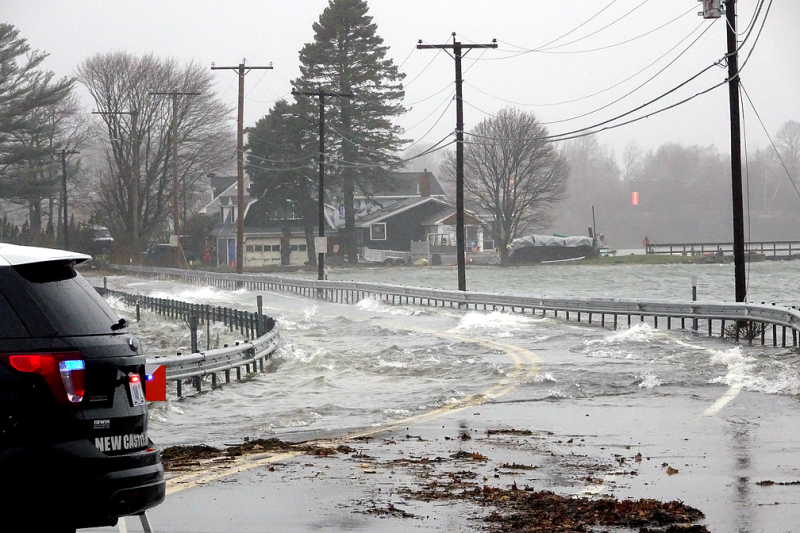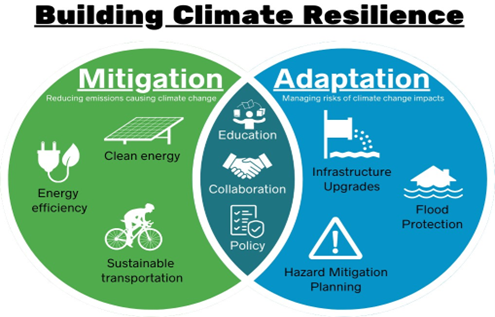Climate Resiliency
According to the National Oceanic and Atmospheric Administration, average global temperature has risen by 2°F since 1880, and rates of warming are increasing. In fact, the 10 hottest years in the historical record have all occurred since 2010.[1] Communities around the world are recognizing that climate change is not a faraway future state – its effects are already here. Whether facing sea level rise, hotter temperatures, wildfires and droughts, or catastrophic storms and flooding, the need to address climate change is urgent.

New Castle Causeway flooding (courtesy Rockingham Planning Commission)
For the SNHPC region, inland flooding is the most significant climate risk. Warming temperatures allow the atmosphere to hold more water, resulting in more intense rainfall and an increased risk of flooding that has the potential to dramatically compromise the region’s infrastructure, ecology, and quality of life. According to the NH Department of Environmental Services, flooding is the state’s most common and costly natural disaster.[2]
Building a resilient region
SNHPC is actively working to promote climate resiliency throughout the region to help communities effectively prepare for, respond to, and recover from climate-related threats. By designing systems that are attuned to an evolving climate, resilient communities not only seek to minimize damage – they also identify new and innovative opportunities for human and ecological systems to thrive together.
SNHPC is laying the groundwork for ongoing collaboration around climate planning efforts that address adaptation, or actions to manage the risks associated with climate change, as well as mitigation, or actions to reduce emissions that contribute to climate change. Both adaptation and mitigation strategies across a variety of sectors will be necessary to foster climate resilience.

For more information, please see Building Resilience Against Extreme Weather Events, an RPC-authored article published in the July/August 2023 issue of NH Municipal Association's Town and City Magazine.
[1] See Climate.gov: “Climate Change: Global Temperature”

